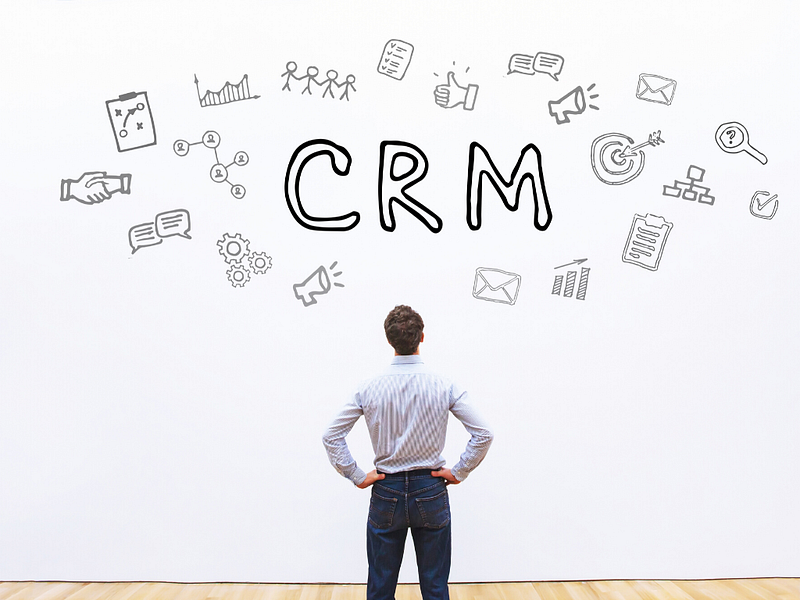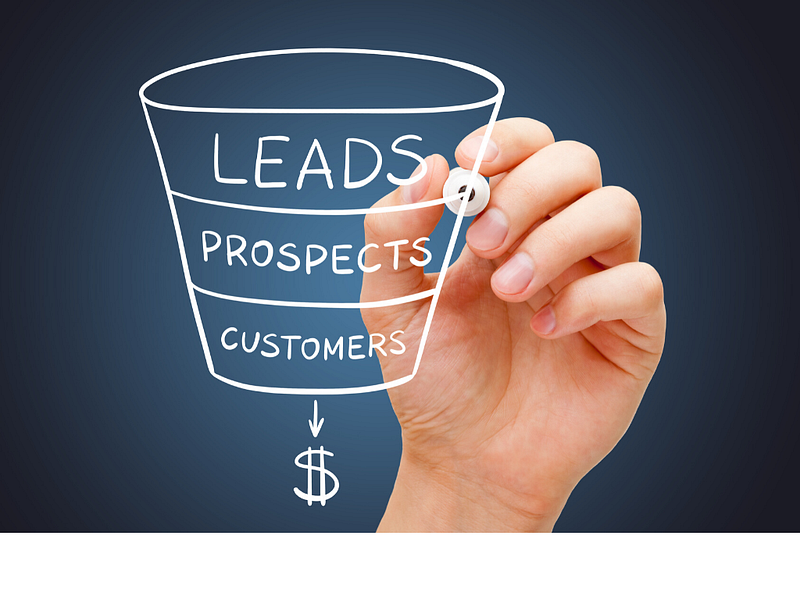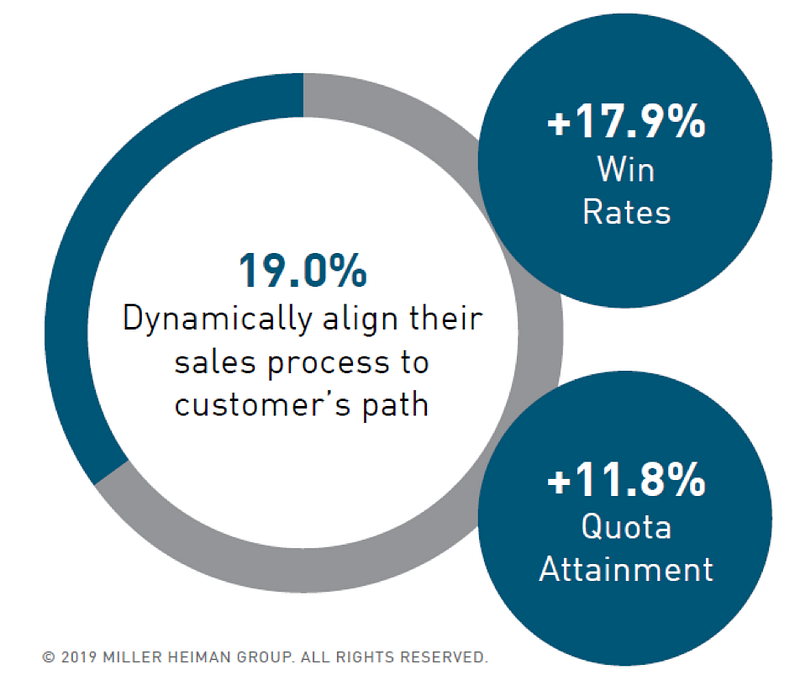The success of any business lies in its ability to forecast change and be armed to manage and strategize plans for the future.
Therefore, to make this easy for all the companies that are on the lookout for the latest sales trends, we have put together the insights from the top 18 sales leaders and experts that can give you a perspective on prospecting, nurturing, objection handling and closing deals faster.
Here are 6 key Sales trends that are likely to shape sales Growth in 2023:
- Artificial Intelligence in Sales Operation— An era of machines that borrows human intelligence.
- CRM and Personalization — Understanding buyer intent for hyper-personalization
- ABM— Converging sales and marketing efforts
- Meaningful automation — Thoughtful use of technology for increased productivity
- Sales Enablement — Empowering sales reps to better engage with prospects
- Videos — New age communication to substitutes in-person interaction
Knowing them can help you draft your rule book and help you face the challenges in the sales scene. Take a look!
Artificial Intelligence in Sales Operation

Artificial intelligence has changed the business landscape and is gaining ground in the sales and marketing process.
Currently, 40% of sales tasks could already be automated, and McKinsey predicts that by 2020, 85% of them will be automated.
AI in the sales sphere helps mine leads, data corresponding to these leads, assists in projecting trends that could be used by sales reps for improving their productivity.
Tools such as Seamsless.ai, ZoomInfo, Linkedin Sales Navigator generate leads using demographic and firmographic data, sift them based on specific preferences, and build accounts.
Besides, they are powered to obtain email, contact no, and insights of any professional one would like to target for their business.
In addition to this, what makes artificial intelligence the secret weapon of sales is the ability of predictive analysis. A technique that can help leverage buyer intent data and insights on buyer behavior to focus on delivering better customer experience based on their recorded past preferences.
“75% of buyers expect companies to predict their needs and make relevant suggestions before contact”.
By understanding how to respond to the buyer based on their intent data, sales reps can deliver relevant content to the user. It is also valuable for personalizing messages for the prospect that can enhance the customer experience.
There are specific advantages of artificial intelligence that could be extremely beneficial:
-
Increased efficiency
AI takes care of mundane tasks such as fixing a meeting with a prospect, researching prospects, etc. which not only saves a ton of time but also helps reps focus on more critical tasks such as nurturing leads.
-
Enhanced customer experience
AI will help sales reps understand customer psychology based on past behavior and interaction and provide useful recommendations to personalize messages, thereby elevating the customer experience.
-
Generate leads
increased availability of information to fish out the suitable target audience and data to contact them paves in lead scoring.
CRM and Personalization
CRM (Customer Relationship Management) is increasingly becoming relevant because it can bring together data from various silos of the business. It integrates information from sales, marketing, customer service, and social media, allowing sales reps to access data from one centralized location.

In current space, it is grown from more than just being a glorified organizer or a replacement for spreadsheets.
CRM market potential is projected to be $82B by 2025 and growing at 12% annually — Seeking Alpha
Today’s modern customer uses more than two digital devices, which lend sales and marketing a unique advantage to harness information that provides a 360-degree view of customer behavior and scope for hyper-personalization.
79% of organizations that exceeded revenue goals have a documented personalization strategy.
Let’sLet’s look at the advantages of using CRM and personalization for sales :
Organization
With CRM, it is easier to follow up on meetings, there is minimal information loss, and prioritizing customers becomes a lot more efficient. Everything stays organized because all the departments, such as marketing, service, shipping, and sales, remain connected.
Hyper- personalization
When AI, along with CRM, works efficiently in understanding and building on customer data, the personalization that goes into this is very focused. Every action is defined, the intent is clear, and the outcome planned. Tools such as Clearbit, Demandbase use buyer intent data to help sales reps.
“Sales technologies that come out with integration into platforms like Bombora as an example. They have integration already built-in, allowing me as a seller to reach out to a specific PO. It is what I will call hyper-personalization meets buyer intent” — Mario Martinez, CEO, Founder, and Digital Sales Evangelist, Vengreso.
Fostering customer relationship
when the buyer intent is mapped carefully to prospect data, it creates very personalized messages that not only helps sales convert but builds valuable customer relationship.
Australia’sAustralia’s Leading ‘’C’’ Level Sales Authority and Sales Coach, Steve Hall notes that “at the moment there are far too many people with generic value propositions that are throwing videos, LinkedIn messages, and emails at the wall to see what sticks. Targeting through personalization for reaching out is going to become much more critical.”
Account-Based Marketing

ABM (Account-Based Marketing) has been around for quite some time now, but it is expected to see a significant uptake in the coming years. The reason is self-evident.
ABM is looking at the alignment of sales and marketing efforts at its best.
When the two agree to work in agreement to use a spear instead of the net, the fishes they are bound to catch are going to be heavier.
The most significant success of ABM besides identifying the best fit accounts is having both marketing and sales in alliance operating towards a common goal.
With modern ABM, marketing can deliver personalized messages which would lure target accounts that sales teams are beating themselves up to convert.
They will be speaking the same language without ambiguity, thereby increasing revenue.
Chief Evangelist and Co-Founder of Terminus Sangram Vajre states, according to Forrester Research — “Less than 1% of leads turn into customers,” which shows the sense of urgency to Flip the Funnel. In his best selling book, ABM is B2B. He holds six companies that have gone from 1.0 to 2.0 in the B2B maturity curve using ABM.
Like the other trends we looked at, ABM has its own set of advantages :
Expedite sales process
a company that relies on ABM has the perk of the quickened sales process. Usually, significant accounts involve several key decision-makers, which lengthen the sales process. However, with ABM in place, marketing is targeting the primary decision-makers, spending efforts on nurturing them along with relevant prospects, which can accelerate the sales process.
Reducing churn
ABM’s ideal customer profile depends heavily on people who are a qualified fit for the product and presented with personalized messages based on buyer intent and behavior. It not only establishes trust and contributes to customer loyalty but also significantly reduces churn. Also, it opens opportunities for the teams to upsell.
Shorter sales cycle
By promptly addressing the audience that needs your product/service and by eliminating unqualified prospects, the sales cycles significantly shrinks. And the bonus is, it is extremely cost-efficient.
91% of companies using ABM were able to increase their average deal size, with 25% of respondents stating the increase being over 50% or larger! — SiriusDecision
An interesting fact about ABM is not to equate the ideal customer profile as the revenue-generating ones. Because, it may seem, clients who pay matter the most, eventually, if they aren’t happy with your product, they can be extremely detrimental to your business. In the end, what matters is customers who are profitable in the long run, the ones who are happy with your product/service, and with whom it is pleasurable to work.
Videos

“87% of marketing & sales teams use video on a regular basis, up from just 63% back in 2017.” — wyzowl
Videos have traversed the barriers of time zone, distance; to some extent, even language (non-verbal communication plays an important role) and impersonal messages such as emails that lack personalization, thus making them a golden ticket for sales reps.
Videos are now seen as a crucial touch-point in a sales cadence along with email, phone calls, and direct mails. Sales representatives can record and share videos via email, Linkedin Messages, and social media. It is now easier to connect better with the prospects as videos enable sales reps to have a one-to-one conversation at a scale which is the next best thing to meeting the prospect in person.
Chief Value Officer Renbor Sales Solutions Inc., Tibor Shanto, notes, “Videos are just going to continue more and more as 5G comes on. I look at my strategy, and it takes me a lot less to do a video blog than to write a blog. Rather than spending much time on editing the blog for grammar, style, and organization, it is going to save a lot of time and interest people. At least nobody can mock my spelling on a video. So Video is going to be the one.”
Cisco’s Visual Networking Index forecasts that by 2022, videos will account for 82% of all internet traffic.
Video content seems to hold higher stakes when it comes to the way people are consuming content online. Also, it is clear that be it prospecting, follow-up, nurturing, or closing deals, videos are something one has to watch out for as they are here to play a vital role in the sales sphere.
Meaningful Automation
A survey conducted by Salesforce in 2018 revealed that Salespeople spent 34% of their time actually selling, while the majority of their time is spent on other duties.

However, this trend has been improving significantly because of automation. Automation of repetitive, time-consuming, laborious tasks with the help of software, artificial intelligence (AI), and other digital tools can channelize the sales reps energy to contribute towards sales activities making him more efficient and productive.
On a typical day, non-sales activities such as data entry, contact research through emails, and other administrative tasks could be automated to free up the valuable time for sales reps aiding them to focus on selling.
“Clearly and unavoidably the application that could be entire of different discussion is the whole idea of AI, machine learning, and how those could be applied to some rudimentary activities. If we can automate them reliably, it will free some bandwidth for salespeople. But what the sales leaders should watch out is also to make sure that this freed up bandwidth is captured and re-invested into selling” is an interesting theory by Chief Value Officer Renbor Sales Solutions Inc., Tibor Shanto.
For, E.g., A CRM tool like Hubspot or sales enablement tools like Outreach, could help in lead scoring and fetching useful information about prospects, and also automating sequences for following up with the prospects using email.
Sales meeting tools like Calendly, Arrangr can be used to book meetings with prospects in their calendar. Sales call automation tools like Gong, Wingman, Avoma, and Chorus are useful in recording conversations and helping sales reps gain insights by processing information discussed during the call.
However, it is essential to remember that automation has to be meaningful and cannot pervade the space where the prospect expects personalization. It cannot ambush the prospect by breaching the prospect’s privacy.
Jason Bay, CEO of Blissful Prospecting, has a piece of insightful advice on automation:
“It is counter-intuitive, but the trend I notice is that there is too much automation right now and so many tools to help you automate. A good email outreach software is just $29 per month. For $29 a month you can spray and pray thousands of super templated emails every week. It is too easy to do mass automation. But what people are responsive to is being human and empathetic.”
Sales Enablement

“If you think training is expensive, try ignorance” — Peter Drucker.
Missing out on sales enablement can cost your business — all the above trends we discussed repose on sales enablement.
The role of sales enablement in the future years will not stop by getting the SDRs up to speed with the processes and training to deal with challenges.
It also involves developing the best tools and strategies that can help the customer choose by understanding his decision-making behavior.
4 areas where sales enablement is bound to take off :
1. One size doesn’t fit all:
As the business expands, sales teams should be empowered to use different skill sets, equipped with new technology and materials for customer acquisition, retention, and expansion. Unless sales teams are trained to handle different situations, are adept at working with changing technology, they won’t be able to win over the prospects. Sales enablement will help make the sales reps situationally fluent, making them flexible with changing buyer market demands.
2. Situational Fluency:
Sales enablement is usually designed, keeping in mind one or a few set scenarios where the selling exercise happens while the truth is otherwise. Making sales teams situational fluent in terms of adapting to the scene — remote, in- person, over the call, and understanding buyer psychology along with business objectives, is the need of the hour.
3. Changing business landscape:
Businesses are dynamic and faced with unprecedented challenges. During the crisis, people should be armed with the skills to catch up with what is expected. If sales training is not poised to be in line with the speed that business demands, the possibility of getting lost is higher. As someone said, sales enablement is not a start and stop the process; it is a journey. It evolves with time.
4. Integrates sales and marketing:
Sales enablement is the only bridge that can connect the sales and marketing teams to deliver tools and messages to buyers that are relevant, easy to understand, and credible. On the other hand, sales enablement keeps sales and marketing on the same page by sharing content that is readily available such as whitepapers, case studies, blogs, and training material.
When sales and marketing teams are aligned, Marketo discovered leads are 67% more likely to become clients. And the right sales enablement plan can make it happen.

SiriusDecisions found that 28% of companies employ seven or more full-time sales enablement staff. This figure rises to 43% for top-performing organizations.
Some useful sales tools like Allego, Brainshark helps teams adapt to modern learning techniques for sharing and retaining vital information for rapidly changing environments. Mike points out, “sales enablement is important to verify whether the sales that might have the right PMF are doing it right.”


